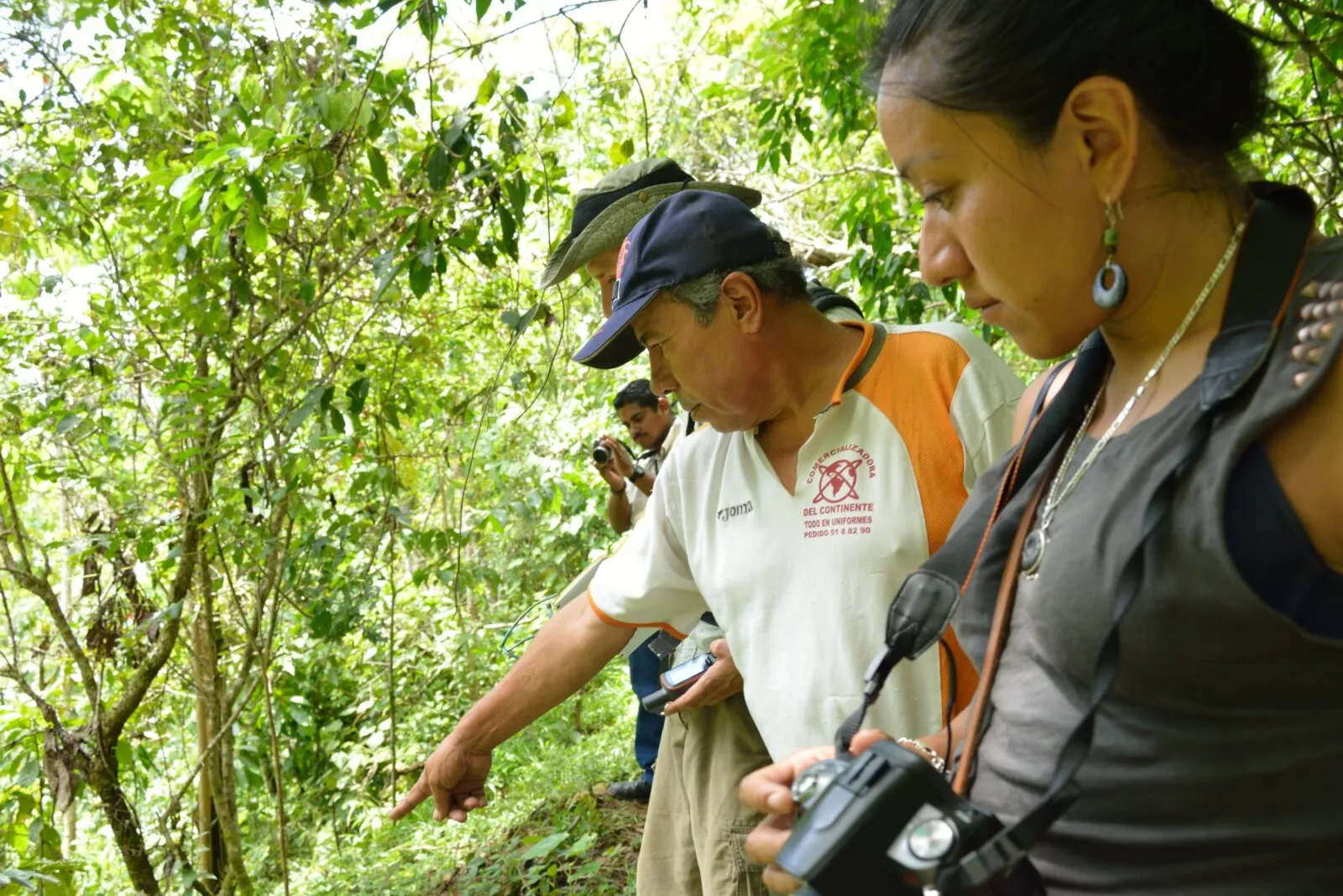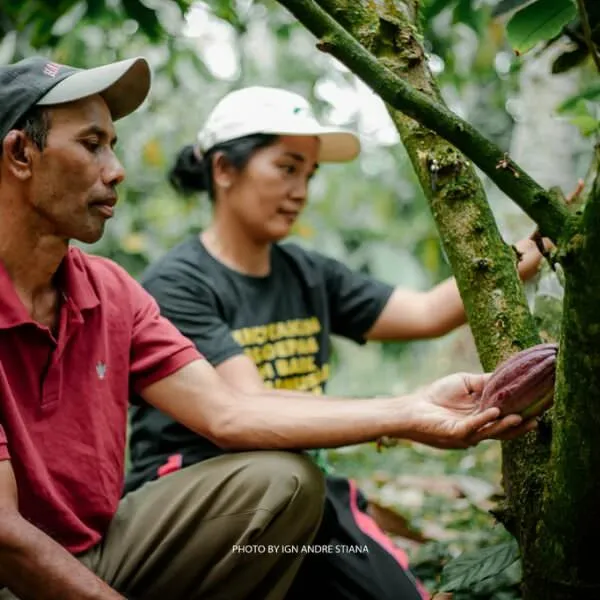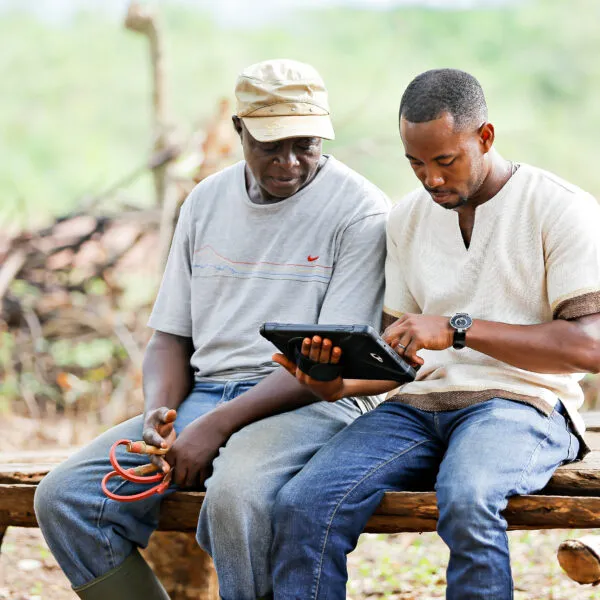The Rainforest Alliance Certification Program is one of our key tools for driving sustainability at scale. Through certification, we work with partners in diverse sectors in 58 countries across the world—each context bringing distinct sustainability challenges and opportunities. That is why the Rainforest Alliance 2020 Sustainable Agriculture Standard was set up to be adaptable to each farm and supply chain certificate holder’s specific context.
To ensure that farms and businesses that participate in our program are fulfilling the relevant criteria, the Rainforest Alliance employs several assurance tools. These include auditing, proactive risk management, stakeholder engagement, and continuous improvement. Collectively, these assurance mechanisms support the credibility of certification, allowing it to serve as an important piece of corporate due diligence. The Rainforest Alliance is a member of the ISEAL Alliance, and we comply with the ISEAL Alliance Codes of Good Practice for voluntary certification schemes, and we follow their Credibility Principles.
Auditing: the best-known assurance tool
The Rainforest Alliance seal is a visual symbol that helps consumers make better purchasing choices. It shows them that farmers and companies are taking steps to make their products more sustainable—for the benefit of people and nature alike. The seal represents our vision of sustainability as a journey of continuous improvement, one where transparency and shared responsibility can help us build a world where people and nature thrive in harmony.
Farms or companies wishing to become certified must fulfill specific requirements that support the three pillars of sustainability: social, economic, and environmental. Independent, third-party certification bodies —critical to the integrity of any certification program—evaluate farms against requirements in all three areas before awarding or renewing certification. Each certificate is valid for a period of three years. The certification bodies approved by the Rainforest Alliance all hold an independent ISO17065 accreditation and comply with strict additional rules set by the Rainforest Alliance.
During the three-year certification cycle, yearly audits check for continued compliance with the rules of our standard, including whether the context-specific improvement plans crafted at the beginning of the certification cycle as part of our continuous improvement approach are being followed. On top of these regular audits, each certification body performs surprise audits on 10 percent of the certificate holders in their portfolio.
Certification bodies are monitored and evaluated by the Rainforest Alliance’s certification body monitoring team through regular performance audits and training on best practices.
Limitations of auditing
Our certification program can be a strategic building block for identifying and tackling root causes of systemic issues. While audits are a key supporting element in maintaining the integrity and credibility of the program, they provide only a snapshot in time of a partner’s compliance. Therefore, audits cannot be a standalone tool for addressing systemic issues.
Since audits occur periodically, they may not always uncover human rights violations such as child labor, forced labor, gender discrimination, and freedom of association, which can be hidden from auditors. Indeed, certification programs that employ a zero-tolerance approach can drive these abuses underground, making them harder for auditors to detect. That’s why the Rainforest Alliance Certification Program employs an assess-and-address approach, which supports farms in developing trackable systems for preventing, identifying, monitoring, and remediating against key human rights issues. The implementation of this assess-and-address system is a core requirement of our Farm Standard, meaning that certification cannot be achieved unless this requirement is met.
How non-conformities work
During the yearly audits, if a farm does not meet one or more of the requirements established in the Farm Standard, it will be noted as having one or more nonconformities (NCs). To close any NCs identified in the auditing cycle, certificate holders perform a root-cause analysis of what factors led to the NC and create and implement a remediation plan for correcting the issue. This includes ensuring that harm that has previously been done is corrected and the root causes have been addressed.
If farms do not close those NCs within the time established in our rules, their Rainforest Alliance certification can be suspended. Suspension can last up to three months, during which time the farm will not be able to sell their yields as certified. Suspension is temporary and provides farms with the opportunity to work on improvements, often with support from the Rainforest Alliance and other parties involved.
In certain cases, decertification is also an option. These cases may include situations where there is severe and lasting impact on the physical and/or psychological wellbeing or integrity of the worker, systemic and/or continued violations, a lack of implemented remediation plans, or situations where the harm has been committed deliberately. Decertification means that the certificate holder is no longer part of the program. Should they wish to become certified again, they would have to wait at least six months, and then reapply to start the auditing cycle from the very beginning.
Proactive risk management
Audits are an important component of our assurance systems. Our certification program also, however, emphasizes identifying and mitigating sustainability risks rather than simply reacting once issues occur. The assurance system begins with risk analyses carried out at the farm and supply-chain level. These are used to identify the relevant requirements for each farmer or company. During the certification cycle, data is also collected at regular intervals. The idea is to provide members of our program with the right tools to assess the sustainability risks most relevant to their situation, and our third-party certification bodies with the ability to focus their audits.
For example, we introduced the use of risk maps for several key issues including child labor, forced labor, and deforestation. By combining external data sources with inputs including location data, Rainforest Alliance data, specific sector data, and expert advice from thematic leads, these maps identify the risk level of countries, organizations, and farms (or farm units) for key sustainability topics. The assurance requirements in higher risk locations are more stringent than those in low risk locations.
Stakeholder engagement
Our certification program is premised on continuous improvement and on the power of alliance. Our system has provisions to promote collaboration with other key stakeholders who may have influence to identify areas of improvement, support tackling root causes, and contribute to improving conditions on the ground.
For example, the Rainforest Alliance standard promotes multi-stakeholder engagement in prevention and remediation of critical human rights and environmental issues. Often, this entails collaboration with stakeholders like local government, social services, NGOs, and schools.
Additionally, having functional grievance mechanisms helps ensure that stakeholders can submit grievances and that allegations of human rights abuses or environmental destruction or degradation are identified and remediated at the most direct level—the farm or certified operation—whenever possible. Certification bodies are also required to have a grievance mechanism and inform the farmers and workers about this when they audit farms. The Rainforest Alliance takes the complaints submitted through these grievance mechanisms very seriously. Grievances may also be submitted through the Rainforest Alliance website, all of which are followed up.
Workers and labor organizations also play a key role in our assurance practices. Our auditing system includes measures so that workers may be interviewed off-site, where they may feel more comfortable speaking candidly, and recognizes the important role that organized worker organizations and representative bodies (such as trade unions) play in the pursuit of sustainable agriculture and decent working conditions. We are increasing our collaborations with trade unions, by providing training on how to utilize our grievance mechanisms. We also use informal complaints as a crucial aid in helping identify compliance irregularities.
Certification can play a pivotal role in addressing the deeply rooted challenges in the agricultural sector, when used in conjunction with effective local governance structures, effective social dialogue, corporate action and thorough due diligence. It is only through alliances like these that critical sustainability challenges, including issues around pesticide use, working conditions, and human rights, can be protected and improved.
We also seek to address the long-term structural conditions underpinning these challenges through our advocacy work with governments—local, regional, and international. And we work together with companies to promote more shared responsibility in the cost of production of the commodities that we certify.
Corporate due diligence
Within a few years, most companies operating in the European Union (EU) market will be required to show human rights and environmental due diligence throughout their value chains. Many German companies are already required to do so under the Supply Chain Due Diligence Act, which went into effect in January 2023. Since July 2022, the Norwegian Transparency Act compels large companies selling products and services in Norway to do the same.
Rainforest Alliance certification is a key tool in helping companies meet those requirements at the farm level. You can learn more about how companies can show human rights and environmental due diligence here.




